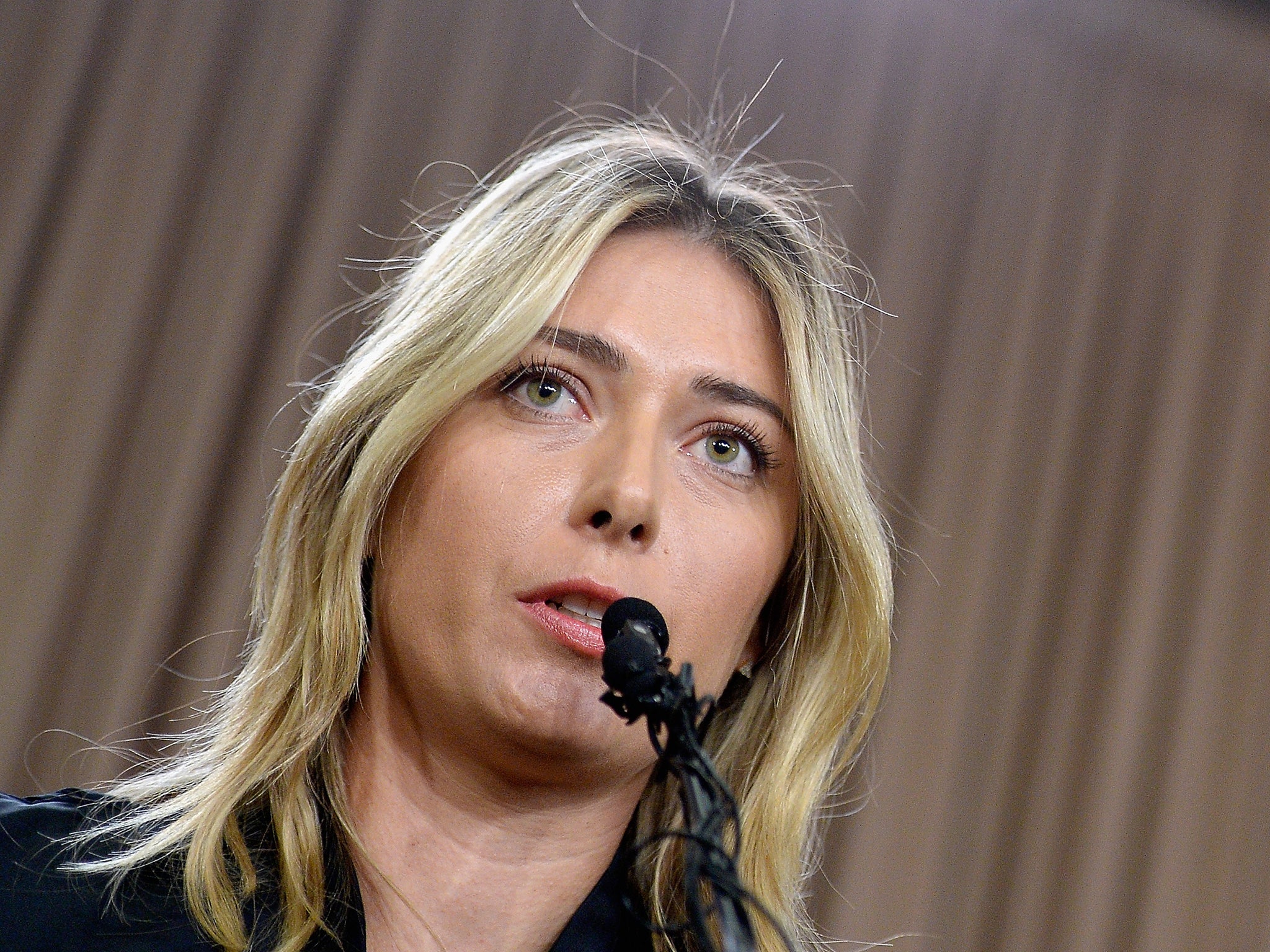Meldonium: Wada announces partial amnesty on substance which led to Maria Sharapova positive test
The women's tennis player was the most high-profile athlete to test positive for the substance this year

Athletes who tested positive for the banned drug meldonium may be able to have their bans reversed, the World Anti-Doping Agency (Wada) has announced.
The anti-doping foundation has admitted that further research needs to be carried out to establish how long meldonium remains in the blood stream.
As a result, samples from tests conducted before March 1 2016 and which contain less than one microgram of meldonium may be seen as permissible.
“If the anti-doping organization finds that the athlete could not reasonably have known or suspected that the substance would still be present in his/her body on or after 1 January 2016, then a finding of no fault or negligence may be made,” a statement by the foundation reads.
“In the case of meldonium, there is currently a lack of clear scientific information on excretion times,” the statement adds.
“For this reason, a hearing panel might justifiably find… that an athlete who has established, on the balance of probabilities, that he or she ingested meldonium before 1 January 2016, could not reasonably have known or suspected the meldonium would still be present in his or her body on or after 1 January 2016.
“In these circumstances, WADA considers there may be grounds for no fault or negligence on the part of the athlete,” the statement continued.
The decision may have repercussions for women’s tennis player Maria Sharapova, who failed a test for meldonium while competing at the Australian Open in January.
The Russian was the most high-profile name to fall foul of anti-doping testers, as around 127 athletes worldwide were banned for use of the drug.
Meldonium, also known as mildronate, was added to Wada’s list of banned substances on January 1, with athletes being notified of its prohibition in the autumn of last year.
"The Russian Sports Ministry supports and welcomes the decision made by Wada because it has showed a willingness to understand the situation, rather than stick to the rulebook," said Russian sports minister Vitaly Mutko.
Mutko recently revealed that around 40 of his country’s athletes had failed tests for meldonium.
"They were ready to study how long it would take for meldonium to be eliminated from the body of an athlete,” he added. “WADA has demonstrated impartiality and being objective in the fight against doping."
Subscribe to Independent Premium to bookmark this article
Want to bookmark your favourite articles and stories to read or reference later? Start your Independent Premium subscription today.

Join our commenting forum
Join thought-provoking conversations, follow other Independent readers and see their replies